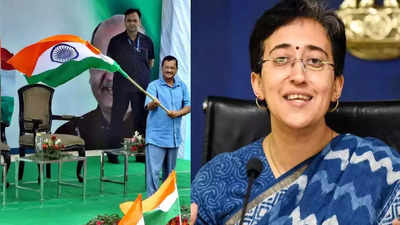
Atishi, a prominent figure within AAP, has been in the spotlight for her contributions to the party and her role in various government initiatives. Her potential involvement in the Independence Day celebrations is viewed by the party as a significant step towards acknowledging her leadership and commitment to public service.
The Bharatiya Janata Party (BJP) has responded with skepticism, asserting that Atishi’s role in the flag hoisting should be reconsidered until she holds a higher office, such as Chief Minister. BJP leaders argue that such ceremonial roles should be reserved for those in prominent executive positions, underscoring a broader debate about the appropriateness of ceremonial duties versus political positions.
This request comes at a time when political leaders across India are navigating the delicate balance between ceremonial honors and executive responsibilities. The BJP's counterpoint highlights a division within the political landscape regarding the criteria for such symbolic acts of patriotism.
Kejriwal's move to have Atishi participate in the flag hoisting ceremony reflects his ongoing strategy to bolster party morale and showcase AAP's leadership talent. It also underscores the party's emphasis on celebrating its leaders' contributions to governance and public service.
The controversy surrounding this request has sparked a wider discussion on the role of ceremonial duties in Indian politics and the symbolism attached to such roles. As political parties continue to navigate these issues, the debate over Atishi's potential involvement in the Independence Day ceremony serves as a focal point for broader discussions about political representation and ceremonial roles in India.
In the weeks leading up to Independence Day, this debate is likely to continue, influencing public opinion and political discourse.
